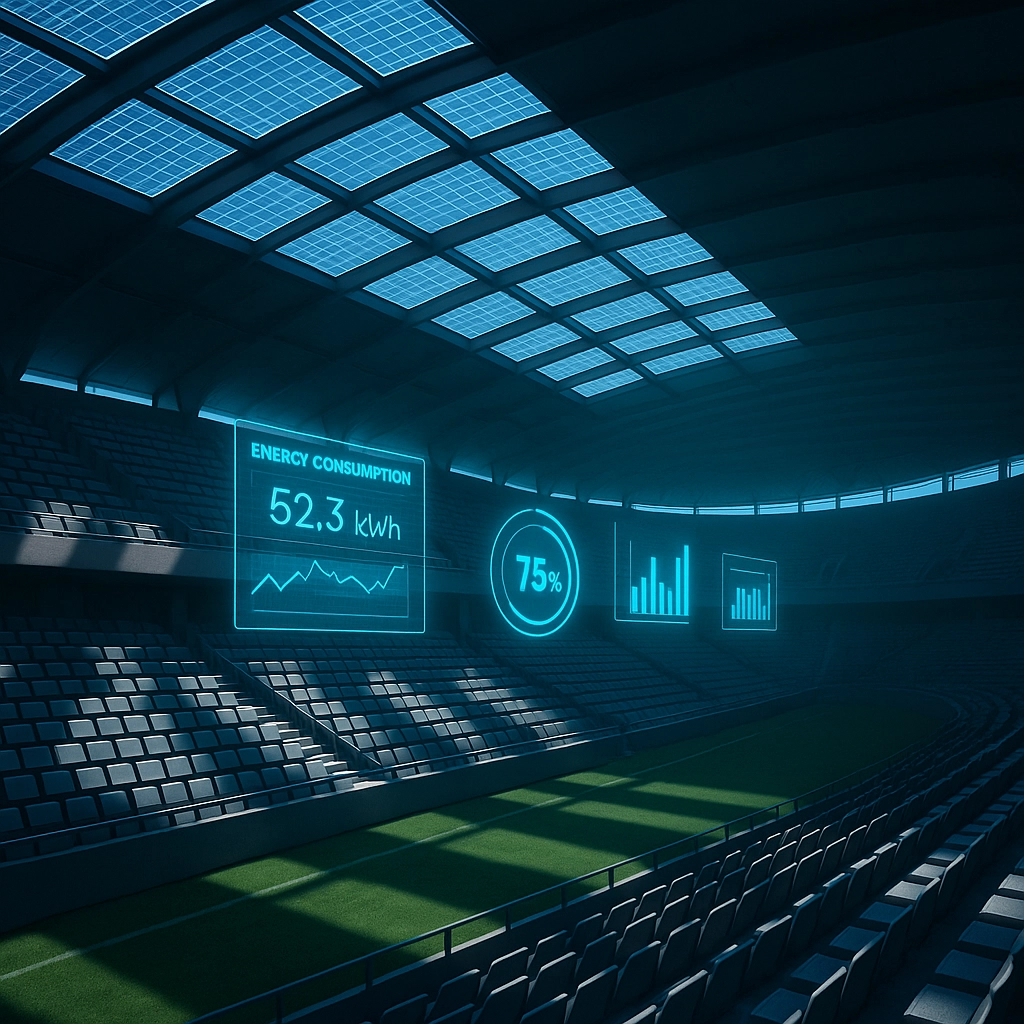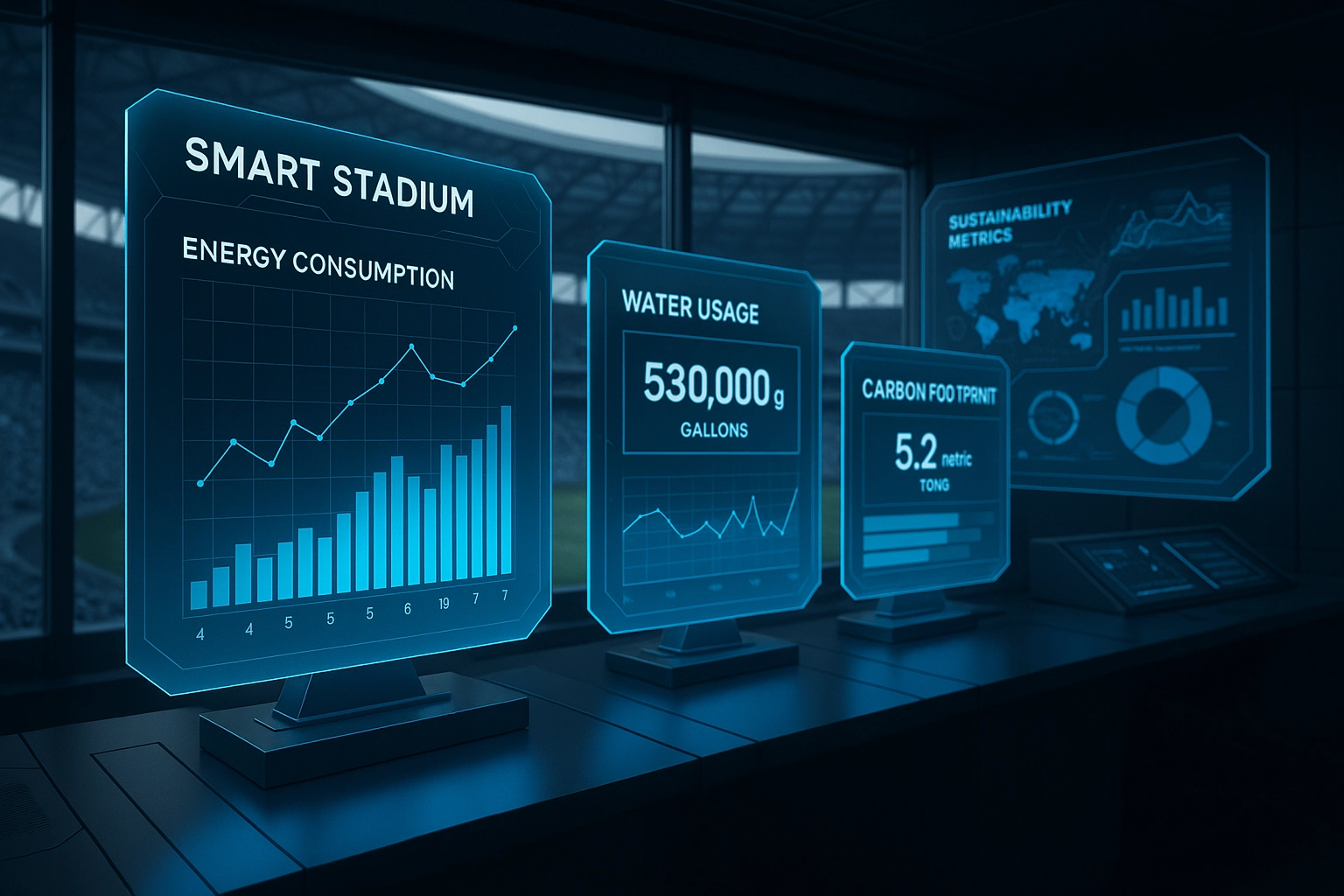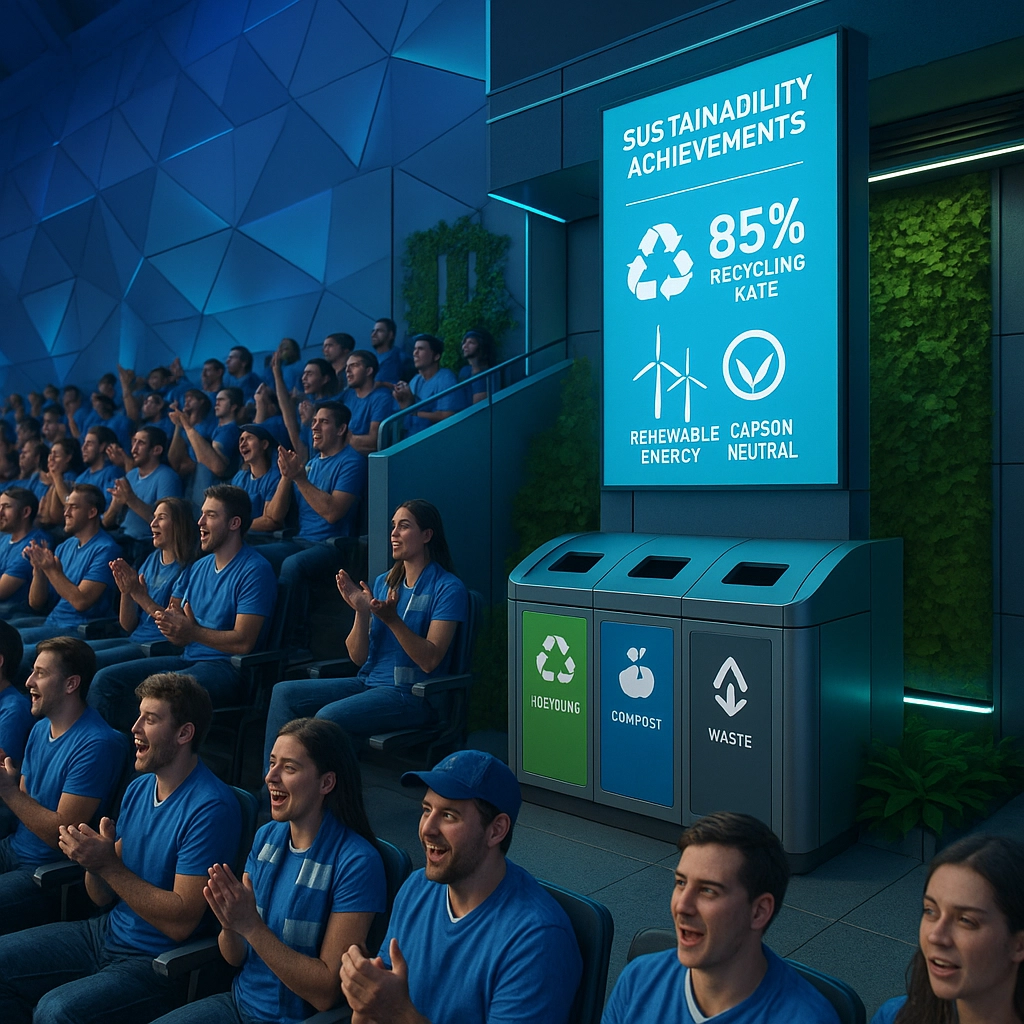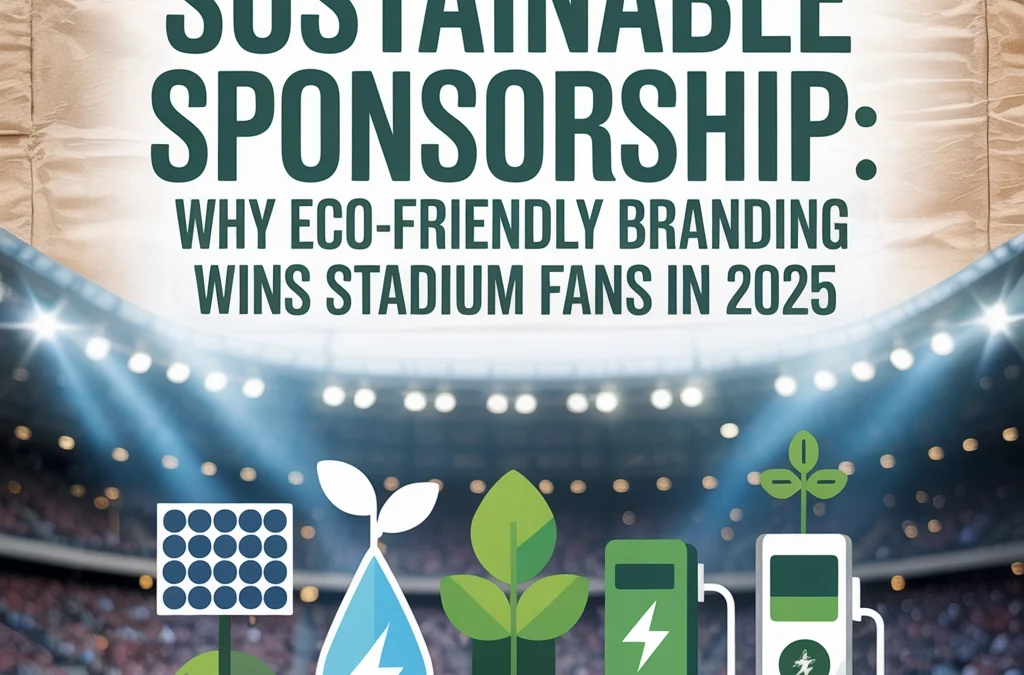The sports sponsorship landscape has undergone a dramatic transformation in 2025. Stadium fans no longer simply cheer for their favorite teams – they actively evaluate the environmental responsibility of the brands that sponsor their beloved venues.
This shift represents a fundamental change in how effective sponsorship strategies operate. Eco-friendly branding has evolved from a nice-to-have marketing add-on into a critical component of successful stadium partnerships.
The Business Case for Green Stadium Sponsorships
Forward-thinking sponsors recognize that sustainability delivers measurable business results. Over 60% of major sponsors now consider comprehensive sustainability policies essential for partnership decisions. This percentage continues climbing as consumer awareness reaches unprecedented levels.
The financial benefits extend beyond positive brand perception. Sustainable stadium initiatives generate significant operational cost savings through energy efficiency improvements, waste reduction programs, and resource optimization strategies.

Corporate sponsors partnering with environmentally responsible venues access powerful platforms for demonstrating authentic environmental leadership. These partnerships create genuine community impact stories that resonate with socially conscious consumers across all demographic segments.
Fan Engagement Through Environmental Innovation
Modern stadium sustainability initiatives have become compelling fan attractions that drive deeper venue loyalty. Renewable energy implementations capture fan imagination while delivering tangible environmental benefits.
MetLife Stadium's installation of 1,350 solar panels producing 350,000 kWh annually demonstrates how environmental responsibility transforms into visible source of venue pride. Fans actively share these achievements on social media, creating organic marketing value for associated sponsors.
Stadium cup and serviceware reuse programs supported by the Green Sports Alliance create direct fan participation opportunities in sustainability efforts. These programs transform routine stadium operations into shared environmental experiences that strengthen community bonds.
Water conservation systems, green roofs, and living walls contribute to local biodiversity while creating unique venue atmospheres. Fans associate these distinctive features with forward-thinking brands and progressive corporate values.
Technology Integration Driving Sponsor Value
Cutting-edge green technologies in 2025 stadiums enhance fan experiences while reducing environmental impact. These innovations provide sponsors with compelling storytelling opportunities and authentic sustainability credentials.
LEED Platinum certified venues like Mercedes-Benz Stadium showcase how environmental achievements become powerful branding tools. These certifications differentiate venues and their associated sponsors in increasingly competitive markets.

Smart building systems optimize energy consumption while maintaining optimal fan comfort levels. Advanced lighting and ventilation systems adapt to local climate conditions, demonstrating practical sustainability applications that fans can observe and appreciate.
Renewable energy systems designed for extreme weather resilience, such as hurricane-resistant solar installations in Florida stadiums, illustrate how sustainability strategies adapt to regional conditions. This localized approach ensures environmental initiatives feel authentic and relevant to local fan communities.
Avoiding Greenwashing While Building Authentic Partnerships
The sustainability movement demands authentic commitment rather than superficial marketing campaigns. Sponsors risk severe reputation damage when promoting environmental achievements while partnering with venues lacking comprehensive sustainability programs.
Successful eco-friendly sponsorships require measurable environmental impact data, transparent reporting systems, and genuine long-term commitments to sustainable practices. The Sustainable Sport Index provides frameworks for objective evaluation and fan communication of environmental achievements.
Corporate partners must align their internal sustainability policies with venue environmental standards to maintain credibility with increasingly sophisticated stadium audiences. This alignment creates more impactful business relationships than traditional advertising approaches.
Strategic Implementation for Maximum Impact
Effective sustainable sponsorship strategies require systematic planning and execution across multiple touchpoints. Sponsors must integrate environmental messaging throughout their venue presence rather than limiting it to isolated campaign elements.

Partnership opportunities emerge through facility-specific sustainability initiatives. Minnesota stadiums might emphasize efficient heating systems for harsh winters, while Arizona venues focus on water conservation and cooling innovations. These targeted approaches create relevant connections with local fan bases.
NFL Green's focus on environmental issues in Super Bowl host localities, such as offshore artificial reef projects in New Orleans, demonstrates how sporting events become catalysts for meaningful environmental action. These initiatives provide sponsors with authentic community impact narratives.
Venue sustainability features should integrate seamlessly with sponsor activation strategies. Solar panel installations can incorporate brand messaging, while recycling programs can feature sponsor-branded collection systems that maintain environmental authenticity.
Long-Term Competitive Advantages
Sustainable sponsorship positioning provides significant advantages as global consumers increasingly analyze the environmental responsibility of entities they support. This trend represents fundamental changes in sports marketing effectiveness measurement and valuation.
Eco-friendly venues attract fans who prioritize sustainability, creating natural alignment opportunities for environmentally conscious sponsors. This demographic alignment translates into stronger brand loyalty and improved marketing return on investment.
Sports organizations leverage their substantial financial resources, celebrity influence, and media coverage to drive broader sustainability adoption. Sponsors partnering with these initiatives gain access to powerful platforms for environmental leadership demonstration.

The integration of sustainability and purpose-driven partnerships creates more effective business relationships than traditional advertising methodologies. These partnerships generate authentic emotional connections between brands and fan communities.
Measuring Success in Sustainable Stadium Sponsorships
Comprehensive measurement strategies track both environmental impact and business performance metrics. Successful sponsors establish baseline measurements before partnership implementation and monitor progress through standardized reporting systems.
Key performance indicators include energy consumption reduction percentages, waste diversion rates, water conservation achievements, and carbon footprint improvements. These metrics provide concrete evidence of environmental impact that resonates with sustainability-focused consumers.
Fan engagement metrics demonstrate the marketing effectiveness of sustainable sponsorship strategies. Social media engagement rates, brand sentiment analysis, and purchase intent studies reveal how environmental initiatives influence consumer behavior.
Partnership duration and renewal rates indicate long-term success in sustainable sponsorship relationships. Venues and sponsors committed to authentic environmental responsibility typically develop extended partnerships that benefit both parties.
Future-Proofing Through Environmental Leadership
The sustainability movement in sports venues continues accelerating as climate change concerns intensify and consumer environmental awareness expands. Early adoption of comprehensive sustainable sponsorship strategies positions brands advantageously for future market conditions.
Regulatory changes increasingly favor environmentally responsible business practices across all industries. Sponsors establishing strong sustainability credentials through stadium partnerships prepare for evolving compliance requirements and consumer expectations.

Innovation opportunities in sustainable stadium technologies create ongoing partnership potential for forward-thinking sponsors. Emerging technologies in renewable energy, waste management, and resource conservation provide platforms for continued environmental leadership demonstration.
The convergence of sustainability and sports sponsorship has fundamentally reshaped stadium marketing in 2025. Brands that embrace authentic environmental responsibility through strategic venue partnerships create lasting competitive advantages while contributing to meaningful environmental progress.
At Dakdan Worldwide, we understand that sustainable sponsorship represents the future of effective stadium marketing. Our comprehensive approach helps brands develop authentic environmental partnerships that drive both business success and positive community impact.


Recent Comments